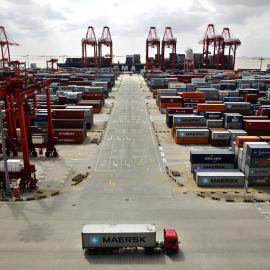To the Editor:
In "The Greening of the WTO" (November/December 2001), Michael Weinstein and Steve Charnovitz acknowledge, as most trade analysts do not, that it is not increased trade that environmentalists object to; it is specific agreements like the North American Free Trade Agreement (NAFTA) and
the World Trade Organization (WTO). However, they should have taken the effort to analyze the full environmental argument against these institutions rather than asserting that the WTO is becoming environmentally benign.
Their analysis is wrong on several fronts. First, trade produces environmental harm in importing countries because of pollution or public health risks associated with the traded goods. Trade restrictions are not the right way to solve this problem. But protections against the sale of polluting or potentially unsafe products, protections that apply equally to domestic and imported goods, are not trade restrictions -- and should not be under the purview of a trade agreement. When the United States bans the sale of narcotics, or Saudi Arabia bans liquor, no one accuses them of protectionism. A European ban on the sale of hormone-treated beef or genetically engineered soybeans is not a trade restriction. It is a consumer safety rule -- even if it is based on cultural or religious preferences -- and should not be controlled by a trade body. Weinstein and Charnovitz disagree on the grounds that a precautionary principle aimed at protecting against potential threats to public safety would allow for "environmental zealotry." But why do we need a global trade body to protect each nation against environmental zealotry? Should we expand its jurisdiction to religious extremism as well?
The existing models for the WTO talks constitute nothing less than an international regime restricting the rights of communities to regulate private property. Such a regime can only weaken the claims of communities against those of investors. Environmentalists' experience under NAFTA has been that such rules are used against environmental protections.
Trade can also harm the three great global environmental commons: the atmosphere, the oceans, and the genetic inheritance of the biosphere. The authors assert that the world trade regime must somehow be protected from "unilateral attempts by some member governments to protect the environment through trade restrictions." Why? There are only two means by which the global commons can be protected from overexploitation. One is through international environmental agreements; the other is unilateral sanctions imposed by responsible commons users upon abusers. Trade sanctions constitute one of the few tools nations have against those who would exploit the global commons. Such actions constitute self-defense. If the world's fisheries are overfished by a few nations, all nations suffer; depletions in the ozone layer that cause skin cancer observe no national boundaries.
If the WTO continues to interpret its rules as limiting the right of nations to protect their interests in the global commons, environmentalists will be forced to continue to oppose it.
CARL POPE
Executive Director, Sierra Club
